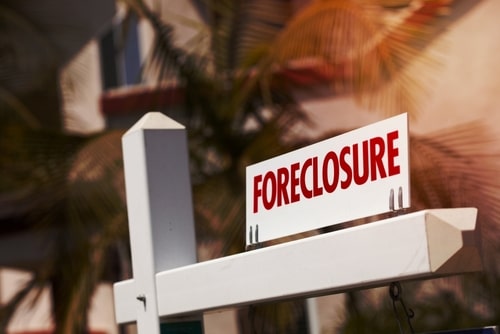What Should You Know About the Foreclosure Process?
 If you have fallen behind on your mortgage payments, you may be at risk of foreclosure. This legal process allows lenders to seize and sell your property to recoup their losses from your defaulted loan. Foreclosures can be complicated, stressful experiences, so it is essential to understand the critical steps in the process. An Illinois real estate lawyer can help protect you and guide you through the following steps.
If you have fallen behind on your mortgage payments, you may be at risk of foreclosure. This legal process allows lenders to seize and sell your property to recoup their losses from your defaulted loan. Foreclosures can be complicated, stressful experiences, so it is essential to understand the critical steps in the process. An Illinois real estate lawyer can help protect you and guide you through the following steps.
When Does the Foreclosure Process Start?
If you miss a payment, the foreclosure process cannot just begin. There has to be a process that your lender follows, such as the following:
- Delinquency Letter- The first sign of foreclosure trouble usually comes in the form of a delinquency letter from your mortgage lender. If you miss a mortgage payment, expect to receive written notice within 30 days informing you that you are behind. At this early stage, keeping your mortgage current can stop foreclosure.
- Notice of Default- If delinquency continues for 90-120 days, the lender will issue a Notice of Default. This signifies that you have breached your mortgage contract. You typically have 30 days from receiving this notice to resolve the default or the foreclosure proceeds.
What Options Do Homeowners Have?
You may still have options as a homeowner, depending on your situation. Most often, you will have one of the following choices:
- Reinstatement- Even after a Notice of Default, you still have the right to reinstate your mortgage by paying the total amount owed in a lump sum. This stops the foreclosure and lets you keep your home. However, reinstatement becomes costlier the longer you stay in default.
- Forbearance or Modification- Your lender might agree to a forbearance plan, allowing you to make reduced payments for a short period until you regain financial footing. Or, they may modify your mortgage with a permanently lowered monthly payment. Qualifying for these options often requires proof of financial hardship.
- Short Sale or Deed Instead of Foreclosure- If reinstatement and mortgage adjustment do not work with your situation, you can attempt to sell the home and hand all proceeds to the lender via a short sale. Or voluntarily transfer deed ownership to avoid foreclosure through a deed instead of foreclosure. These will not save your home but can allow you to avoid foreclosure on your record.
What Happens at a Foreclosure Sale?
If no alternative resolutions or payments are made, the lender will schedule a public foreclosure auction. At the auction, third-party investors can bid cash on the home. Ownership transfers back to the lender if no one bids enough to cover the mortgage balance. Afterward, the lender can sell to individual buyers.
Contact a DuPage County, IL Real Estate Lawyer
Facing foreclosure is overwhelming, but understanding the process can put power back in your hands. Connect with a Cook County, IL real estate attorney to ensure you receive proper notice from the lender. An attorney can advise whether any defense against foreclosure is worthwhile and ensure your rights remain protected at each step. Call Whitacre & Stefanczuk LTD at 773-622-6100 for a free consultation.






